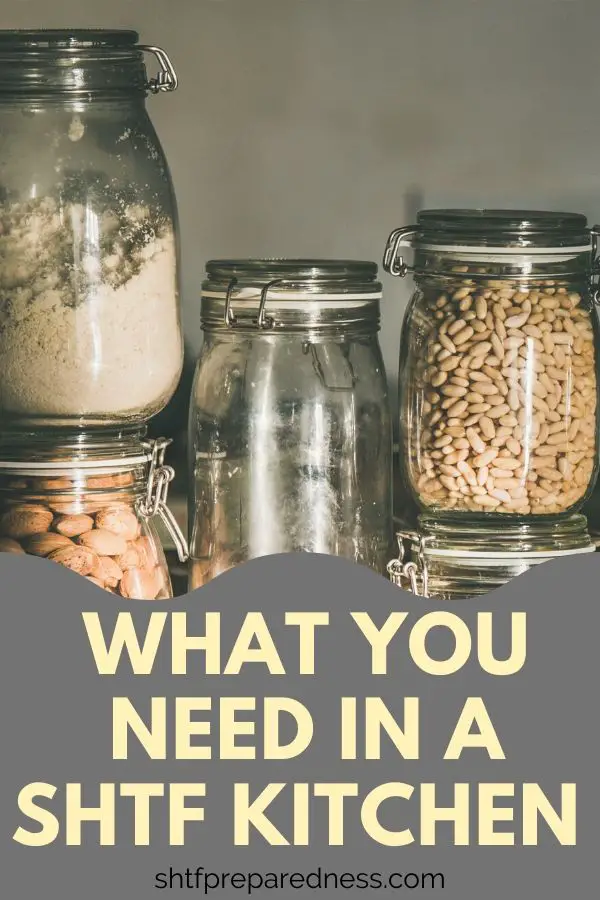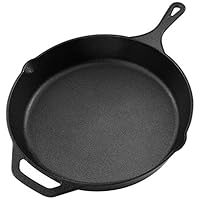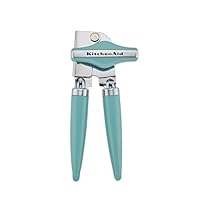Whether you believe the end of the world is near or think it’s a really good idea to be prepared just in case, building a SHTF home begins in the kitchen.
You see it in every disaster-struck area: food and water are the first things to go scarce. There are no two ways about it: you need to keep eating to live. Let’s see what you need in your SHTF kitchen.
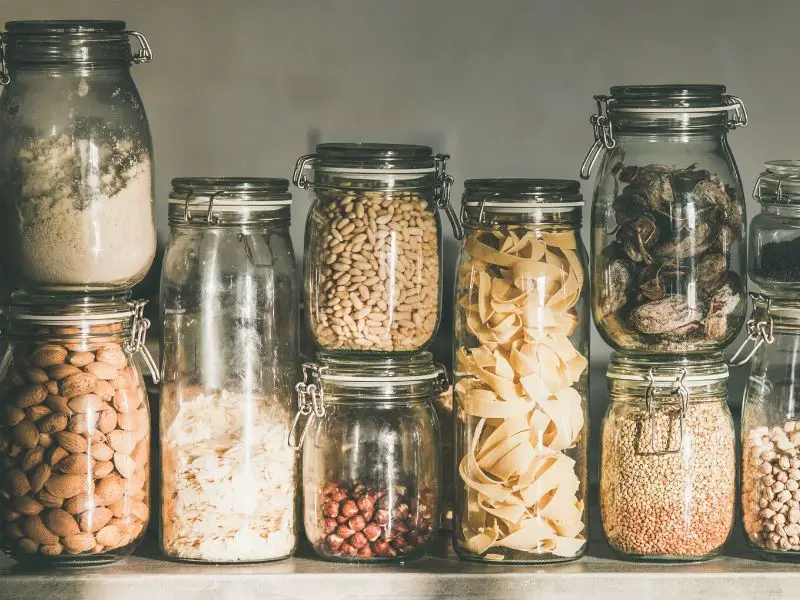
Must-Haves of a Proper SHTF Kitchen
1. Food
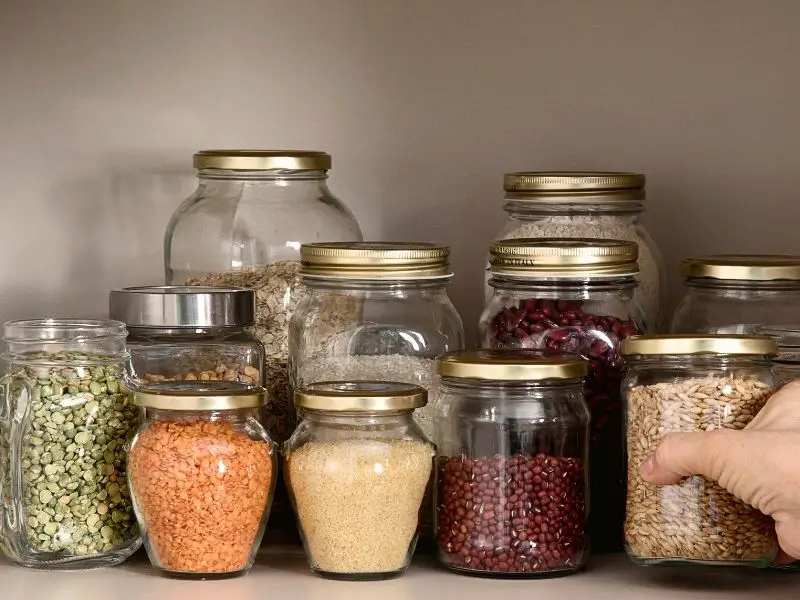
If you’re prepping for SHTF, chances are you’re buying food for the kitchen. Lots of food! Anything dried, canned, or freeze-dried is ideal.
Your prepper pantry should be stocked with enough food to last you and your family for a long time.
Whether you’re prepping for a few months of disaster or a full failure of society as we know it, you’ll have to determine what your goal for stockpiling is.
As far as how much food to stockpile, you know your family best. Observe how much food you go through and plan accordingly.
Whether the Jolly Green Giant or you put together all those canned goods, you’ll need a place to store them.
Keep in mind that, for security purposes, you’ll want a good, out-of-sight place to store all this food. We’ll get into that later.
So what are the best foods to stash in your SHTF kitchen and pantry? Canned goods and dry goods are among the best.
Properly stored, they’ll last for years. This includes canned meats. Rice and pasta are filling and preserve well. Sugar, spices, flour, cooking oil, and other basic cooking goods can round out your stores.
If you’re prepping for an event that lasts longer than a few months, you might want to start your own garden to upkeep your food stores.
Beans and potatoes are easy to grow, filling, and nutritious. They also stay good for years if properly stored. Fruit trees, while they take a long time to mature, can pay off in a big way down the road.
2. Water
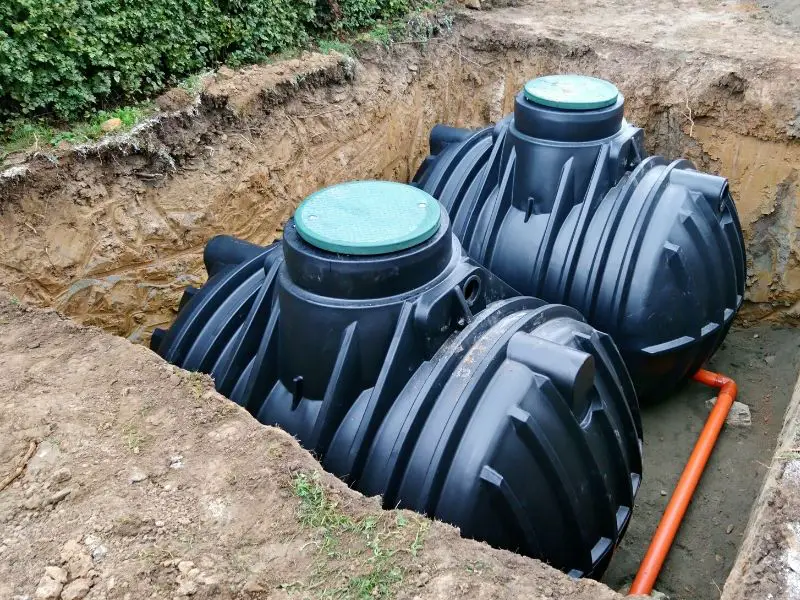
Water will be your most precious resource. Stockpile it first, and stockpile a lot of it. You should collect one gallon of water per person per day (and don’t forget your pets).
If you live near a natural source of water, purification tablets can protect you against contaminants. Additionally, be sure to have water filters and other water purification methods on hand.
However, if you have access to water, conserving your supply is important. Ration your daily expenditures of water. Bathe quickly and efficiently, use half-empty glasses of water to water plants or clean dishes.
If you retain access to running water or have a well, make sure to practice water-saving techniques like running your faucet only when necessary or mending water leaks in showers and toilets.
Nobody likes a cold shower, but if you keep a hot water heater running through your power supply, be careful not to use that hot water to excess. Your home will need power in other places, like cooking and heating or cooling (depending on the climate).
3. Appliances
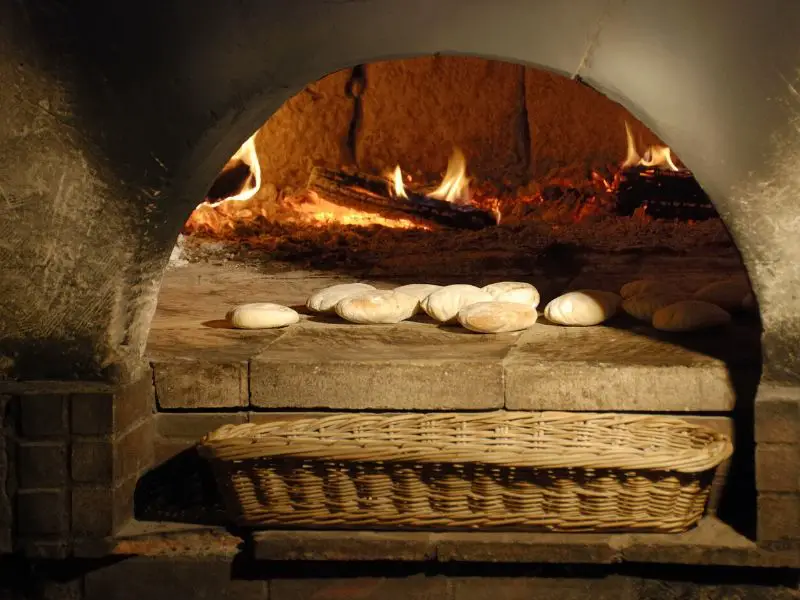
How you want to cook in your SHTF homestead kitchen is greatly influenced by two things: how you’re powering your home and how discreet you wish to be.
In a TEOTWAWKI scenario, discretion can be your best friend. Smoke from a fire and food smells can draw unwanted attention from outsiders who might not have the best intentions.
In that scenario, something like a solar oven is the best way to prepare your food since it reduces the smell.
Wood burning ovens or stoves can do double duty: you can use them to cook food and to heat your home.
They do give off smoke, so this is better for a power-grid-down scenario where law enforcement is still in place, or to cook at night when it won’t be so visible.
If you still have power or have solar power to keep your lights on, you can use hot plates, thermal cookers, crock pots, or traditional ovens.
4. Accessories
Pre-Seasoned Cast Iron Skillet Extra Large Bamboo Cutting Board
Extra Large Bamboo Cutting Board  Classic Can Opener
Classic Can Opener
You have your food, water, and method of cooking the food. Now you need your little odds and ends that make up a kitchen.
Knives, naturally, are incredibly useful for so much more than just cutting food. When purchasing your knives, make sure they are the kind that can be sharpened. You’ll need a sharpener to go with them.
Matches, a teakettle, cutting board, and a colander can all be very useful. Think about what you’ve stockpiled. Lots of pasta? You need the stuff to make pasta.
A can opener will be useful if you’ve stockpiled canned goods. For anything you can get as a hand crank, like a can opener or egg beater, go that route.
If you have electricity, you’ll want to use it for other things. Select your pots and pans carefully. Cast-iron skillets are low-maintenance and incredibly useful for open-fire and kitchen cooking.
5. Safety First
Always keep an eye on safety. Be careful of what you can burn in your home and what you can’t. Charcoal and treated wood should never be burned inside, as they can release chemicals that can sicken you and your family.
Make sure your chimney or wood oven ventilation is cleaned and maintained, or it could become a fire hazard. Keep your kitchen stocked with cleaning materials; you might not be able to go to a doctor if you get sick from bacteria on your cutting board.
6. OPSEC
We all know that OPSEC, or operational security, is vital to maintaining your SHTF kitchen at your BOL. In the worst-case scenario, you’re playing the long game.
Your supply won’t last forever if everyone within a 5-mile radius can see your smoke and smell your food. It can even be dangerous for you and your family.
So how does OPSEC relate to your SHTF kitchen? Kitchens are one of the biggest sources of household trash and other waste.
While a lot of your kit will be reusable, like jars and pans, you’ll need to find a low-key way to store your trash.
You can compost most of your organic materials (especially if you’re growing your own food) and everything else can be buried. Make sure it’s deep enough not to attract animals.
Your food stash should be secured in a hidden, safe place. You want to make sure your food is preserved well, but you also want to make sure it’s as hidden as it can be.
Prepping for SHTF means a lot of secrecy about what you’re up to. When things go wrong, you don’t want your hard work to become a solution in the minds of everyone who knows you.
